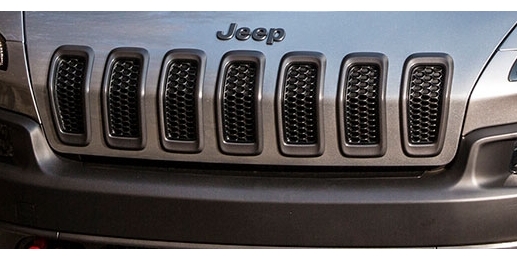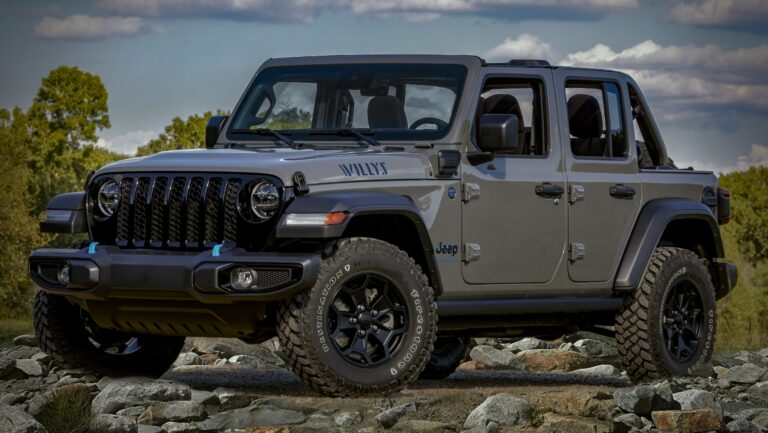Owner Type Jeep For Sale Philippines: Your Comprehensive Guide to a Filipino Icon
Owner Type Jeep For Sale Philippines: Your Comprehensive Guide to a Filipino Icon jeeps.truckstrend.com
The rumble of a diesel engine, the wind in your hair, and the distinct silhouette against the Philippine sky – these are the hallmarks of the "Owner Type Jeep," a vehicle that transcends mere transportation to become a cultural icon. More than just a mode of getting from point A to point B, owning an owner-type jeep in the Philippines is an embrace of a unique automotive heritage, a testament to Filipino ingenuity, and a practical choice for many. This comprehensive guide will delve into every aspect of buying, owning, and appreciating an owner-type jeep in the Philippines, from understanding its origins to navigating the buying process and maintaining your piece of history.
What Exactly is an Owner Type Jeep? A Blend of History and Practicality
Owner Type Jeep For Sale Philippines: Your Comprehensive Guide to a Filipino Icon
At its core, an owner-type jeep is a privately owned, locally fabricated vehicle that draws its lineage from the surplus US military Jeeps left behind after World War II. Unlike the longer, passenger-focused "jeepneys" used for public transport, owner-type jeeps are typically shorter, often open-air or with removable tops, and are designed for personal or commercial utility. They are a fascinating fusion of various automotive parts, often featuring engines, chassis, and drivetrain components sourced from Japanese light trucks (like Isuzu, Mitsubishi, Toyota, or Nissan) integrated into a custom-built body.
The defining characteristics of an owner-type jeep include its rugged, utilitarian design, its often exposed leaf-spring suspension, and its powerful, usually diesel, engine built for durability and fuel efficiency on varied terrain. Each owner-type jeep tells a unique story, often customized by its owner, making no two exactly alike. They represent a significant part of the Filipino automotive landscape, embodying resourcefulness, adaptability, and a deep sense of national pride.
Why Choose an Owner Type Jeep? Unpacking the Benefits
The allure of an owner-type jeep goes beyond its iconic status. For many Filipinos, it represents a smart and practical investment, offering a unique blend of advantages:
- Affordability: Compared to modern vehicles, owner-type jeeps are significantly more affordable to purchase, making them an accessible option for many families and businesses.
- Durability and Robustness: Built for challenging Philippine roads, these jeeps are incredibly tough. Their simple, mechanical design means fewer complex electronic systems to malfunction, and their sturdy construction can withstand rough treatment.
- Versatility: Whether for hauling goods to market, transporting family members, or navigating unpaved roads, the owner-type jeep is remarkably versatile. Many models offer convertible tops or open-bed configurations, adapting to various needs.
- Ease of Maintenance and Repair: The reliance on common, often surplus, truck parts means that spare parts are widely available and relatively inexpensive. Most local mechanics are well-versed in diagnosing and repairing these vehicles, making maintenance straightforward and cost-effective.
- Customization Potential: An owner-type jeep is a blank canvas. Owners often personalize their vehicles with unique paint jobs, accessories, engine upgrades, and comfort features, allowing for true self-expression.
- Fuel Efficiency (for Diesel Models): The diesel engines commonly found in owner-type jeeps are known for their fuel economy, an important consideration in the Philippines.
- Cultural and Nostalgic Value: Owning an owner-type jeep is like owning a piece of living history. It evokes a sense of nostalgia and connects the owner to a unique aspect of Filipino culture.

Key Considerations Before Buying Your Owner Type Jeep
Purchasing an owner-type jeep requires careful consideration, as these are often pre-owned, customized vehicles. A thorough inspection is paramount to ensure you’re making a sound investment.
- Engine Type and Condition: Most owner-type jeeps run on diesel engines, with popular choices being Isuzu (4BA1, 4BC2, 4JA1, 4JB1) or Mitsubishi (4DR5, 4D30, 4D32). Check for smoke (excessive black, blue, or white smoke indicates issues), strange noises, leaks, and overall power. Ask about the last engine overhaul.
- Chassis and Frame Integrity: This is the backbone of the vehicle. Inspect for rust, cracks, bends, or evidence of major accidents that could compromise structural integrity. A twisted frame can lead to alignment issues and uneven tire wear.
- Bodywork and Rust: Given the tropical climate, rust is a common enemy. Check floors, fenders, door hinges, and undercarriage for severe corrosion. While minor rust can be repaired, extensive rust can be costly and compromise safety. Also, assess the quality of the body fabrication.
- Transmission and Drivetrain: Test all gears, listening for grinding or slipping. Check for leaks around the transmission and differential. If it’s a 4×4, test the engagement of the four-wheel drive system.
- Suspension and Brakes: Look for worn leaf springs, leaky shock absorbers, and loose steering components. Test the brakes for effectiveness and listen for squealing or grinding noises.
- Electrical System: Ensure all lights (headlights, tail lights, signal lights), gauges, and accessories are working correctly. Faulty wiring can be a fire hazard and difficult to trace.
- Paperwork and Legalities: This is perhaps the most critical aspect. Demand to see the original Official Receipt (OR) and Certificate of Registration (CR). Verify the engine and chassis numbers match the documents. Check if the registration is current and if there are any encumbrances or alarms with the Land Transportation Office (LTO). Never buy a jeep with questionable or incomplete papers.
- Price Negotiation: Prices vary widely based on condition, engine, features, and location. Do your research on prevailing prices for similar models. Be prepared to negotiate, but also be realistic about the value of a well-maintained unit.
Where to Find Owner Type Jeeps for Sale
The search for your ideal owner-type jeep can be an adventure in itself:
- Online Marketplaces: Websites like Facebook Marketplace and OLX (Carousell Philippines) are popular platforms where individual sellers and small dealers list their jeeps. Dedicated Facebook groups such as "Owner Type Jeep Philippines Buy and Sell" are also excellent resources.
- Local Car Shops and Mechanics: Many small automotive shops or independent mechanics in provincial areas specialize in owner-type jeeps and often have units for sale or know owners who are looking to sell.
- Word-of-Mouth: In the Philippines, local communities are often the best source. Ask around, as someone often knows someone selling a jeep.
- Direct from Owners: Sometimes you’ll spot a "For Sale" sign on a jeep parked along the road. This can offer direct negotiation opportunities.
- Specialized Fabricators/Restorers: Some shops specialize in building or fully restoring owner-type jeeps. While more expensive, these units often come with warranties and higher build quality.
The Buying Process: A Step-by-Step Guide
Once you’ve found a promising unit, follow these steps to ensure a smooth purchase:
- Initial Contact and Information Gathering: Ask for detailed photos, vehicle history, and reason for selling. Inquire about the papers upfront.
- Physical Inspection: Arrange to see the jeep in person. Bring a trusted mechanic who specializes in diesel engines and older vehicles. They can spot issues you might miss.
- Test Drive: Drive the jeep on various road conditions (smooth, rough, uphill) to assess engine performance, transmission shifting, brakes, steering, and suspension. Listen for unusual noises.
- Negotiation: Based on your inspection and market research, make an offer. Be prepared to haggle politely.
- Documentation Verification: Before any money changes hands, go to the LTO to verify the OR/CR, check for alarms or pending violations, and confirm the vehicle’s legitimate status. A Deed of Sale should be prepared, clearly stating the sale terms, price, and vehicle details.
- Payment: For security, use bank transfers or manager’s checks rather than large amounts of cash. Ensure you get a signed receipt.
- Transfer of Ownership: This is crucial. Both buyer and seller must go to the LTO to process the transfer of registration. This ensures the vehicle is legally yours and prevents future liabilities for the seller. Do not skip this step!
Maintaining Your Owner Type Jeep: Keeping it Running Strong
Owner-type jeeps are known for their durability, but regular maintenance is key to their longevity.
- Regular Oil Changes: Adhere to the recommended oil change intervals for your specific engine.
- Fluid Checks: Regularly check engine coolant, brake fluid, power steering fluid (if applicable), and differential fluid.
- Rust Prevention: Wash your jeep regularly, especially after driving through muddy or salty areas. Consider applying rust-proofing treatments to the undercarriage.
- Brake Inspection: Periodically check brake pads/linings and ensure the system is free of leaks.
- Tire Rotation and Alignment: Regular rotation extends tire life, and proper alignment ensures safe handling.
- Electrical System Check: Inspect wiring for signs of wear or damage. Ensure all lights and gauges are functioning.
- Find a Trusted Mechanic: Build a relationship with a mechanic who understands the nuances of owner-type jeeps and diesel engines.
Customization and Upgrades: Making it Your Own
One of the most appealing aspects of owner-type jeeps is the endless potential for customization.
- Engine Swaps: Many owners upgrade to more modern, fuel-efficient, or powerful diesel engines (e.g., Isuzu 4JB1-T, Toyota 2C/3C, Mitsubishi 4D56).
- Transmission Upgrades: Swapping a 4-speed for a 5-speed manual can improve highway cruising and fuel economy.
- Power Steering: A highly recommended upgrade for ease of driving, especially in traffic.
- Brake System Upgrades: Converting to disc brakes on the front can significantly improve stopping power.
- Air Conditioning: While challenging due to the open nature, some fabricators can install basic AC systems.
- Comfort and Aesthetics: Upgraded seats, sound systems, LED lighting, custom paint jobs, roll bars, and off-road accessories can transform the jeep’s look and feel.
Potential Challenges and Solutions
While owning an owner-type jeep is rewarding, be aware of potential hurdles:
- Rust: The most common enemy. Solution: Proactive rustproofing, immediate repair of minor rust spots, and proper storage (covered garage).
- Engine Problems in Old Units: Older engines may require frequent repairs or a complete overhaul/replacement. Solution: Factor in potential engine work in your budget. Source parts from reputable suppliers or specialized shops.
- Questionable Paperwork: Unregistered or illegally acquired jeeps exist. Solution: ABSOLUTELY AVOID THESE. Stick to units with complete, verified LTO documents to prevent legal nightmares.
- Parts Availability (for very specific parts): While common parts are abundant, very specific components for obscure older engines might require a search. Solution: Join owner-type jeep communities online; members often share where to find rare parts.
- Comfort for Long Trips: Without upgrades, owner-type jeeps can be noisy and less comfortable than modern cars. Solution: Consider seat upgrades, sound deadening, and suspension improvements if long trips are planned.
Price Guide: Owner Type Jeep For Sale Philippines (Sample Estimates)
Prices for owner-type jeeps vary significantly based on engine, condition, features, and location. This table provides a general range:
| Type/Condition | Common Engine Types | Typical Price Range (PHP) | Key Features/Notes |
|---|---|---|---|
| Project/Runs, Needs Work | Isuzu 4BA1, Mitsubishi 4DR5 | ₱50,000 – ₱120,000 | Functional but requires significant repairs (engine, bodywork, electrical, suspension). Ideal for DIY enthusiasts or those with a restoration budget. Papers may need updating. |
| Running Condition (Fair) | Isuzu 4JA1/4JB1, Mitsubishi 4D30 | ₱120,000 – ₱250,000 | Driveable, basic functions work. May have minor issues, cosmetic flaws, or require some immediate maintenance. Good for daily use with a bit of TLC. Usually comes with complete and current papers. |
| Well-Maintained/Restored | Modern Diesel (e.g., Isuzu 4JA1/4JB1, Toyota 2C/3C) | ₱250,000 – ₱450,000 | Recently overhauled or restored, good paint, clean interior, reliable engine. Fewer immediate repairs. Can serve as a reliable daily driver or weekend vehicle. Often includes some basic upgrades like power steering. |
| Customized/Modernized | Newer Diesel (e.g., Isuzu 4JJ1, 4HF1, 4HG1) | ₱450,000 – ₱800,000+ | Features significant upgrades like modern engine swaps, power steering, disc brakes, sometimes air conditioning, premium sound systems, custom bodywork, and high-quality finishes. Built for enhanced performance, comfort, and aesthetics. |
Note: These are estimates. Actual prices depend heavily on the specific vehicle’s condition, the seller, and market demand.
Frequently Asked Questions (FAQ) about Owner Type Jeeps
Q1: Are owner-type jeeps fuel-efficient?
A1: Generally, yes, especially those equipped with common diesel engines like the Isuzu 4JA1 or 4JB1. They are known for their good fuel economy compared to gasoline vehicles of similar size, though efficiency will vary with engine condition, driving habits, and vehicle weight.
Q2: Can I use an owner-type jeep as a daily driver?
A2: Absolutely. Many Filipinos use their owner-type jeeps as daily drivers, especially in provincial areas. However, for city driving, be prepared for a less refined ride than modern cars. Upgrades like power steering and better suspension can significantly improve daily usability.
Q3: Is it difficult to register an owner-type jeep with the LTO?
A3: If the jeep has complete and legitimate original papers (OR/CR) and its engine and chassis numbers match the documents, the registration process is straightforward, similar to any other vehicle. Problems arise only if the papers are incomplete, fake, or if the vehicle has an LTO alarm.
Q4: Where can I find spare parts for owner-type jeeps?
A4: Spare parts are widely available in automotive supply stores, especially those specializing in truck parts (Isuzu, Mitsubishi, Toyota, Nissan). There are also dedicated "surplus" shops for engines and larger components. Online groups can also help locate specific parts.
Q5: Are owner-type jeeps safe?
A5: Safety features are basic compared to modern vehicles (no airbags, ABS, etc.). Their sturdy frame and simple construction offer a degree of passive safety. Regular maintenance, proper tire inflation, and cautious driving are crucial for safety. Some owners add roll bars for extra protection.
Q6: Can I install air conditioning in an owner-type jeep?
A6: Yes, it is possible, though it can be challenging due to the open cabin design. Specialized shops can install basic AC units, often requiring custom fabrication for mounting the compressor and evaporator. Expect it to be less efficient than in a sealed modern car.
Conclusion: Embracing the Spirit of the Owner Type Jeep
The owner-type jeep is more than just a vehicle; it’s a testament to Filipino resilience, creativity, and practicality. For those seeking an affordable, durable, and versatile mode of transport with a strong sense of character and history, the owner-type jeep stands as an unparalleled choice. While the buying process demands diligence, and ownership requires a commitment to maintenance, the rewards of navigating the Philippine landscape in your very own customized icon are immeasurable. Whether for daily utility, weekend adventures, or simply to own a piece of living heritage, the owner-type jeep remains a beloved and enduring symbol on the roads of the Philippines.




